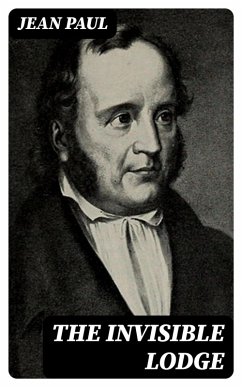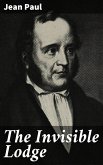In "The Invisible Lodge," Jean Paul crafts a rich narrative that blends elements of fantasy and philosophical reflection, encapsulated within his signature whimsical and satirical prose. This work, published in the early 19th century, explores themes of imagination, the nature of reality, and the intricate interplay between the self and society. With its elaborate metaphors and playful language, the novel invites readers into a surreal world where the boundaries of perception blur, mirroring the Romantic era's inclination toward introspection and emotional depth. The interplay of humor and contemplation in the text serves to provoke thought about the human condition and the illusory aspects of life. Jean Paul, born Johann Paul Friedrich Richter, was a pivotal figure in German Romanticism, renowned for his unconventional narrative style and profound philosophical inquiries. His personal experiences, including his struggles with identity and the loss of loved ones, profoundly influenced his writing and led him to embrace a unique literary approach that defies classification. The Invisible Lodge reflects his distinctive voice, as he sought to challenge societal norms through satire and a deep exploration of existential themes that resonate with his own life experiences. Readers seeking a thought-provoking journey through the intricacies of human perception will find "The Invisible Lodge" an essential addition to their literary repertoire. Jean Paul's masterful blend of humor and philosophy invites reflection on reality and imagination, making it a timeless exploration that appeals to both the intellect and the heart. This novel is not merely a story; it is an experience that encourages readers to engage with the deeper questions of existence.
Dieser Download kann aus rechtlichen Gründen nur mit Rechnungsadresse in A, B, BG, CY, CZ, D, DK, EW, E, FIN, F, GR, H, IRL, I, LT, L, LR, M, NL, PL, P, R, S, SLO, SK ausgeliefert werden.









